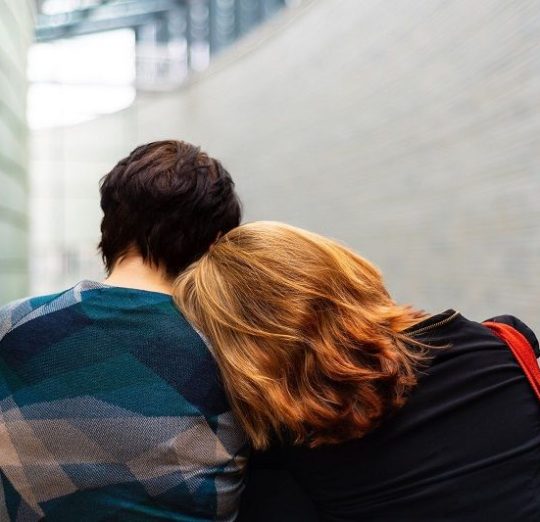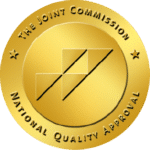Tarzana, South Bay, and Santa Monica
Ketamine Therapy, TMS
and CBT.
This Program is Changing Lives.
IOP level of treatment is 3 or more hours per day for 3 to 5 days per week.
We are not in network with any PPO insurance plans, but we can accept them as an out-of-network provider.
Anxiety is the most common mental disorder in the US, with over 40 million people who experience some type of anxiety disorder. Daily events or stressful activities can result in temporary anxiety symptoms. However, when the anxiety symptoms are severe, debilitating, and are not resolving, this can be viewed as a signal that an anxiety disorder is present.

There are different types of anxiety disorders that are very common today. Those can leave an individual constantly overwhelmed, worried, and nervous. Although some temporary anxiousness can be considered “normal,” some can really get between you and living your best life. Seeking appropriate generalized anxiety disorder treatment can significantly alleviate symptoms and improve the overall quality of life for individuals struggling with constant overwhelm, worry, and nervousness.
OCD features symptoms of anxiety in response to an irrational fear of germs or contamination, fear of angry or aggressive impulses, or an obsessive need for orderliness, cleanliness, or symmetry. In response to the fear, individuals access compulsive behaviors to help manage the anxiety that the irrational obsession induces.
Panic disorder features unpredictable and intense physical symptoms similar to a heart attack, such as a racing heart, shallow breathing, heart palpitations, nausea, chest pain, and dizziness. Because the attacks come on suddenly without warning, people begin to isolate themselves to avoid a panic attack, which could result in agoraphobia.
Social anxiety is characterized by a deep fear of being judged and humiliated publicly, to the point that the individual avoids all types of social interaction and events. This can lead to isolation and loneliness, as well as negatively impacting career opportunities and relationships.
GAD is characterized by extreme worry that is out of proportion to the situation. The exaggerated and chronic worrying can result in an inability to function at basic daily tasks, and physical ailments, such as headache, stomach problems, and muscle tension.
PTSD is related to the anxiety spectrum due to the intense feelings of anxiety that a past trauma provokes. An unresolved traumatic event, whether witness or experienced personally, leads to nightmares, hyper-arousal, and unwanted memories, which can cause the person to avoid any situations or people that might trigger the traumatic memories.
Phobias pertain to the intense and exaggerated fear of a person, place, or thing. The object of fear can lead to irrational and obsessive behaviors as the individual attempts to avoid encountering or triggering the extreme fear that it provokes, leading to avoiding any potential exposure to the specific phobia.
A malfunction in stress hormone production, such as cortisol and adrenaline, can lead to symptoms of anxiety.
A family history of anxiety disorders increases one’s chance of also developing one.
Experiencing physical or sexual abuse, sudden loss of a loved one, combat stress, or a serious accident can lead to an anxiety disorder.
Unrelenting stress caused by pressures at work, financial problems, or marital problems can contribute to anxiety disorder.
Certain personality traits may predispose an individual to anxiety.
Anxiety disorder treatment are determined by the type involved. At Clear Mind Treatment, we commonly use a combination of psychotherapy with antidepressant drug therapy.
A doctor may prescribe an antidepressant, anti-anxiety, or antipsychotic medication, or a combination of to help adjust the patient’s brain chemistry.
Through psychotherapy, patients learn how to manage their internal voice that can lead to anxious behavior. Individual and group-based therapy sessions allow patients to learn new thought patterns to help understand fears behind their own anxieties.
Holistic therapy can provide treat anxiety through activities that help induce relaxation and relieve stress. Such practices can involve meditation, yoga, guided imagery, mindfulness training, as well as Jacuzzi and massage therapy.
FIND RELIEF WITH CLEAR MIND
Schedule a free confidential consultation with a member of our team. Get your questions answered quickly.
Our Locations:
Certification Number: 191268AP
Expiration: 9/30/2025



Clear Mind Treatment is an intensive outpatient healing center that helps individuals struggling with depression, anxiety, trauma and related mental health concerns. Our beautiful, private facility welcomes clients to take part in our uniquely individualized treatment program.

LGBTQIA-Friendly Environment

We proudly work with veterans, police officers, firefighters, and first responders. Post-traumatic stress disorder (PTSD), trauma therapy and treatment. Have you or a loved one witnessed and or lived through a traumatic, scary, shocking or stressful event? PTSD therapy and treatment might be right for you!
